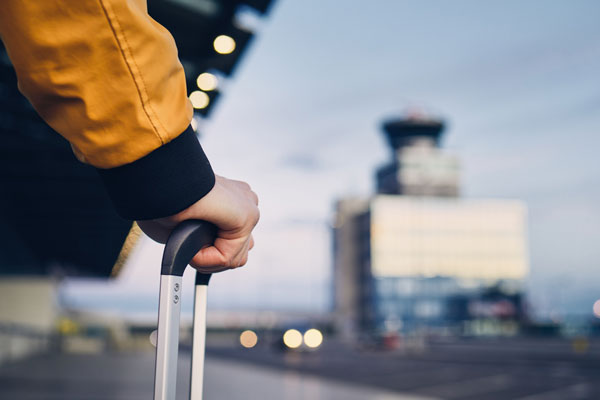Over the 2022-2023 period, the industry will focus on data management, automation, and the emergence of new markets.
This year has seen the travel industry reawaken. Most within the industry now understand that many pre-pandemic practices are no longer applicable in the current environment. Consumer purchasing patterns have changed due to constantly fluctuating travel conditions as well as the continuing emphasis on remote work, which is likely here to stay.
General Trends
1. Data Management [*]
Travel and hospitality companies will face challenges in data preparation and data migration resulting from the new model of work. Companies trying to adopt new retail models, for example NDC (New Distribution Capability), will need data engineers and/or partners with specific domain experience – professionals who know how to assess and plan for migration to access data at scale, and who know how to architect and enable new data processes and practices.
2. Expansion of AI/ML tools application [*]
A key component in the performance and accuracy of AIML solutions will be data manipulation supervised by subject matter experts (SME) in the travel industry. We expect CTOs and CIOs to continue looking for proof of concept in business ideas where AI can use ML toolsets. This refers, among other things, to post-booking automation. Rapid and frequent changes in travel conditions demand more flexible operations. Many of the systems built to take orders are not prepared for post-booking automation to handle the volume of changes in today’s environment. In the leisure and business segments, the implementation of self-service capabilities will continue.
As competitive pressures increase, the hospitality segment should focus on increasing convenience for guests. Hospitality companies must deal with increasing heterogeneity and complexity in the customer experience. Market players need to create a seamless guest experience and offer personalized service based on behavioral data, information from CRMs, and automated back-office operations. In parallel, most recent surveys say that guests continue to want human interaction, so businesses must continue to offer their guests the opportunity to interact with real people when they so desire. The companies able to balance these demands, particularly thanks to AI/ML, are likely to retain guests.
3. Travel and fintech get closer together [*]
Fintech and innovative payment systems will continue to proliferate throughout the travel industry. Increasingly, the travel businesses will integrate fintech apps and services, and enhance the user experience in this sphere. This interest is mutual: fintech brands like Revolt are adopting accommodation and transportation features, complementing their user experience by offering more options with fewer actions. Bold steps in this direction also include travel and expense innovations with better transaction mapping, like the Tripaction app. Hopper uses predictive price models to suggest the best times to buy tickets and make cancellations based on price and offer increased flexibility in payments.
Specific Trends
1. Revenue Management tools for STR companies [*]
Many companies are not forcing employees back to the office, and consequently many people are no longer tied to a specific location. This "work from anywhere" trend is altering the shopping experience. More consumers are looking for longer stays through short-term rental services rather than hotels trying to recoup their losses through higher prices. This trend will facilitate growth and maturation in the STR market. Despite the fertile ground, the main pain point of focus for 2022 will be new market entrants who will experience difficulties in development and support, as well as maintaining distribution of new technological solutions in this burgeoning market.
Particularly, smaller STR companies that continue to build their market presence need effective revenue management systems, in contrast to market giants that have those tools built in. New players will be searching for revenue management tools, architecture, and support.
2. Corporate travel tech will lag
Companies around the world have proved the concept that a business travel line in the budget is no longer relevant in most cases. With Zoom meetings and work-from-home mode, it’s no longer necessary to conduct meetings in person or be onsite to handle business. Today, it’s possible to conduct multiple meetings with numerous partners and cover diverse topics in one business day, eliminating the time and cost associated with travel. Companies continue to invest in Сloud and remote work solutions to optimize routine processes, reduce costs, and enhance productivity. Business travel is unlikely to return to pre-covid levels until 2025.
3. Automation
Although not a new trend in travel and hospitality, automation is quietly gaining momentum and becoming a requirement in the travel industry. As an industry with high human proximity, travel and hospitality experienced high attrition levels during the pandemic and continues to suffer from a talent shortage. Moreover, travel companies were forced to lay off many tech employees, which froze further development of many projects. There is a strong need for experienced tech professionals, and tech travel companies win this talent war.
4. Sustainability (*)
Along with the universal focus on the pandemic and the "code red for humanity" stated in the latest IPCC report, travel and hospitality companies need to prioritize and make corporate sustainability the norm. The industry must facilitate the reduction of single-use materials, optimize logistics to reduce emissions, and become more transparent to customers as well as provide options to choose sustainable services and products. Today, travelers expect companies to offer sustainable travel and accommodation. They expect to see eco-friendly technologies, resource control systems, and touchless technologies to reduce paper waste (recently offered by Marriott), as well as the modular construction architecture used by hoteliers such as CitizenMM.
Greg Abbott is the head of Travel, Transportation and Hospitality New York, USA






























































































































































































